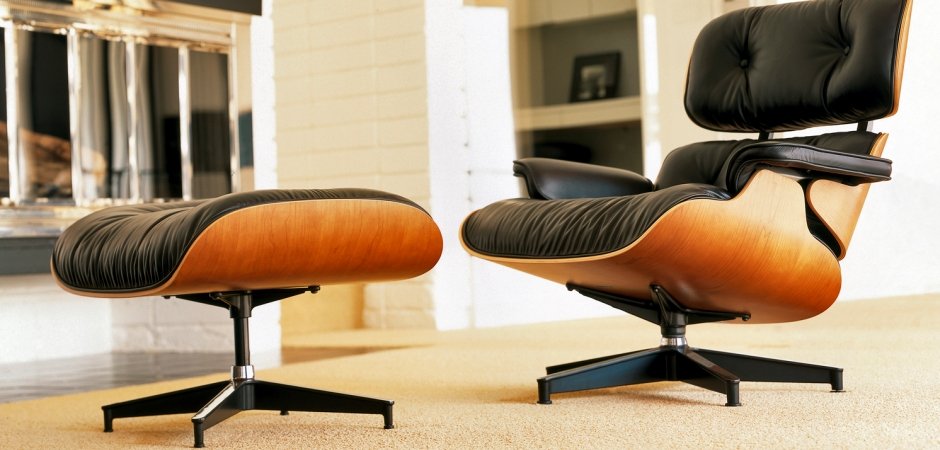How to Choose the Best Lounge Chairs for Care Homes
Choosing the right lounge chairs for care homes goes beyond appearance. Comfort, safety, hygiene, ease of cleaning and usability are essential to create welcoming spaces where residents can relax, socialise and enjoy their surroundings. Lounge chairs play a key role in resident wellbeing, supporting posture, promoting independence and encouraging interaction in communal areas.
Whether you are selecting durable lounge chairs for care homes, nursing home lounge furniture, dementia-friendly seating or easy-to-clean, hygienic options, making informed choices ensures furniture works for both residents and staff. When you’re ready to find furniture that blends style, safety and longevity, Swan Hill can help you to bring your care home vision to life.

Why Choosing the Right Lounge Chair Matters
The right lounge chairs have a significant impact on both residents and staff, influencing the comfort, safety and overall atmosphere of care home spaces. Selecting the best furniture goes beyond aesthetics; it affects daily life, wellbeing and operational efficiency.
Key benefits include:
Enhanced Comfort
Proper support helps to reduce strain on the back, hips and joints, improving posture and making it easier for residents to sit for longer periods without discomfort. Comfortable seating can also help reduce agitation and promote relaxation, which is especially important in communal lounges.
Social Engagement
Lounge chairs that are comfortable and inviting encourage residents to spend more time in communal areas. This promotes social interaction, builds a sense of community, and can have a positive impact on mental health. Chairs arranged thoughtfully also make it easier for residents to engage with each other during activities, meals or casual conversations.
Durability, Ease of Cleaning and Hygiene
High-quality lounge chairs are designed to withstand frequent daily use, helping care homes to save money over time by reducing the need for early replacements. Durable, easy-to-clean furniture with hygienic fabrics also minimises maintenance and ensures that communal spaces remain safe, functional and visually appealing for longer. Prioritising chairs with stain-resistant and antibacterial finishes further helps to maintain high hygiene standards.
Choosing chairs without considering these factors can lead to safety risks, discomfort and increased maintenance burdens for staff. Investing time in selecting the right chairs not only enhances resident satisfaction but also contributes to a more efficient, welcoming and sustainable care home environment.
Discover the Kingsland Midnight Lounge Chair – perfect for creating a statement in any lounge area.
Key Features to Look for in Care Home Lounge Chairs
Comfort and Ergonomics
Residents may spend long periods in lounge chairs, so comfort is a priority. Look for:
-
supportive cushions and lumbar support
-
armrests to help residents sit and stand safely
Comfortable chairs make lounges more inviting and contribute to residents’ physical and mental wellbeing.
Durability and Maintenance of Hygiene
Durable lounge chairs for care homes are essential for long-term use. Features to consider include:
-
strong, long-lasting frames
-
fabrics that are stain-resistant, antibacterial and easy to clean
-
chairs designed to withstand frequent use without losing shape or support
Furniture that is simple to wipe down and disinfect helps staff maintain hygiene with minimal effort, ensuring spaces remain fresh and safe for residents.
Safety Considerations
Safety should never be compromised. Chairs should:
-
have non-slip feet to prevent accidents
-
be stable with a low risk of tipping
-
feature seat heights suitable for residents with limited mobility
Prioritising safety protects residents and makes staff care easier.
Dementia-Friendly Design
In dementia care settings, chairs should support independence and reduce confusion. Look for:
-
clear, simple shapes and high-contrast colours
-
avoidance of complex patterns or sharp edges
-
seating that provides support while remaining easy to access and simple to clean for hygiene purposes
Dementia-friendly seating helps residents feel secure and confident in communal areas.
Aesthetics and Style
While practical considerations are essential, the right chairs also enhance the environment. Choose furniture that:
-
complements existing interiors
-
creates a welcoming, homely atmosphere
-
balances style and function for long-term satisfaction
Experience comfort and style with the Claremont Katniss Lounge Chair without wings.

Choosing the Right Lounge Chair for Different Care Settings
Residential Care
In residential care settings, comfort and community spaces are top priorities. Chairs should encourage relaxation and social interaction, with soft cushions, supportive armrests and ergonomic designs that allow residents to sit comfortably for extended periods. Easy-to-clean fabrics contribute to hygiene, helping communal areas to stay fresh and safe, while also creating a homely and welcoming environment where residents can feel at ease.
Nursing Care
In nursing homes, accessibility and hygiene are critical. Furniture must be simple to clean and sanitise to support infection control. Chairs need to be easy to maintain, with durable fabrics that withstand frequent cleaning. Supportive seating ensures residents can sit safely and comfortably, while designs that facilitate safe movement and positioning allows carers to assist residents effectively.
Dementia Care
Dementia care settings require chairs that reduce confusion, promote independence and provide a sense of security. Dementia-friendly seating with clear, simple shapes, contrasting colours and easily recognisable features helps residents to identify seating quickly and navigate communal areas safely. Chairs should also be comfortable and supportive, with easy access, stable construction and wipe-clean, hygienic materials to prevent accidents and maintain cleanliness.
Common Mistakes to Avoid When Selecting Lounge Chairs
Selecting lounge chairs without careful consideration can lead to problems for both residents and staff. Some common mistakes to avoid include:
-
Prioritising style over function: While appearance is important, choosing chairs based solely on the design can compromise comfort and safety. Residents need supportive seating that promotes good posture and reduces the risk of falls or strain. A visually appealing chair that is uncomfortable or difficult to clean can end up being impractical and unhygienic.
-
Ignoring durability or maintenance: Chairs that are not built to withstand daily use or are difficult to clean can lead to frequent replacements and higher long-term costs. In high-traffic areas, hygienic, easy-to-clean chairs are vital for maintaining safe and pleasant communal spaces.
-
Overlooking resident-specific needs: Each resident has unique requirements, from mobility limitations to cognitive challenges. Failing to account for these needs can make chairs unsafe, reduce independence or limit participation in communal activities. Ensuring chairs are suitable for the specific population in your care setting is essential.
How to Test Lounge Chairs Before Purchase
Before making a final decision, consider testing chairs for:
-
comfort and support for residents
-
ease of use for individuals with limited mobility
-
ease of cleaning and practicality for infection control, ensuring fabrics can be wiped down quickly and effectively
Why not visit our showroom and experience our chairs firsthand.
Final Tips for Choosing Lounge Chairs
-
Prioritise comfort, safety, hygiene and resident independence.
-
Choose durable furniture that is hygienic, simple to wipe clean and long-lasting.
-
Ensure chairs complement your care home’s style and function.
-
Work with experienced providers who understand care home requirements.
Thoughtful selection ensures communal areas are safe, welcoming and comfortable for residents while being practical for staff.
Creating Comfortable, Safe and Hygienic Lounge Spaces
Lounge chairs can transform communal areas in care homes. Carefully selected furniture enhances comfort, safety, cleanliness, and social engagement. By considering ergonomics, durability, hygienic and easy-to-clean materials, and resident-specific needs, you can create spaces where residents feel at home and staff can work efficiently.
When you are ready to explore high-quality lounge chair options that balance comfort, hygiene, style and longevity, Swan Hill can help bring your care home vision to life.
Bring charm and comfort to your space with the Hadnall Wildflower Lounge Chair with wings.
FAQs
What makes a chair dementia-friendly?
Chairs with clear shapes, high-contrast colours, simple patterns, hygienic and easy-to-clean fabrics, and easy access help residents recognise and use furniture safely.
How often should lounge chairs in care homes be replaced?
Depending on use and durability, chairs typically last 5 to 10 years. Choosing high-quality, durable and hygienic, easy-to-clean lounge chairs for care homes can extend this lifespan.
Can Swan Hill help with full lounge refurbishments?
Yes. Their team can design complete schemes tailored to your care home setting, budget, and resident needs.
Are durable chairs more expensive upfront?
They may cost more initially, but save money long-term through longevity, reduced cleaning effort, lower maintenance costs, and fewer replacements.
What materials are best for care home lounge chairs?
Look for chairs with durable, wipe-clean and antibacterial fabrics such as vinyl, or water-resistant upholstery. Frames made from European Beech wood ensure longevity, while stain-resistant and fire-retardant materials improve safety and maintenance efficiency.
How can lounge chairs support residents with limited mobility?
Chairs with proper seat height, firm cushions, supportive armrests and stable construction make it easier for residents to sit and stand independently. Ergonomic designs can reduce strain and encourage safe participation in social and communal activities.

